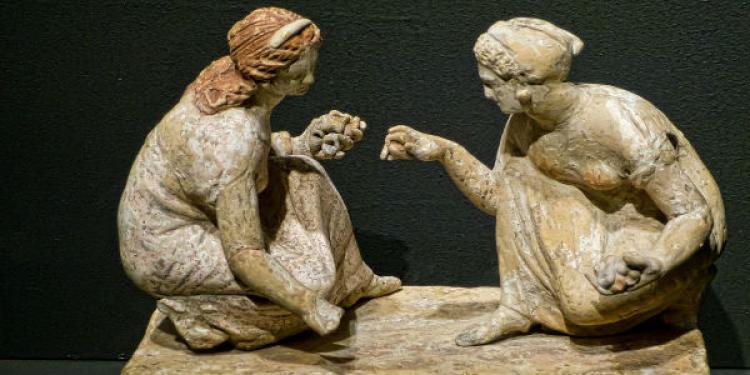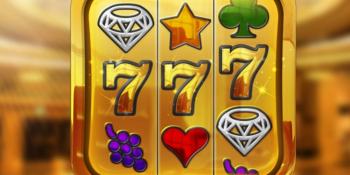Gambling in ancient Greece: the origin of gambling games in Europe (part 2)
Posted: April 6, 2017
Updated: October 6, 2017

Although not many sources are left revealing in details of the games the Ancient Greeks played, gambling in ancient Greece was a cultural constant
Gambling in Europe finds its roots in the gaming practices of the Ancient Greeks.As we have written in our previous articles gambling on the Old Continent evolved from being part of religious practices to providing a way of entertainment for the ordinary citizens. The depictions of Gods gambling, in the art and literary works from the ancient period is also very frequent and some of the beliefs connected to the ancient gambling practices in Greece have been preserved until today. Can you imagine that for instance that the belief that throwing a double six in a dice game is a lucky sign finds its origin exactly in Ancient Greece? Back then, as gambling news report, rolling two sixes was called the ‘throw of Aphrodite’ and it was considered to be a clear indication that a person would win a game.
Gambling and the Gods in Ancient Greek literature
The Greek poet Sophocles writes that dice were invented by a mythological hero during the siege of Troy. While Sophocles writing certainly bear a mythological connotation it must be stressed that ancient gambling has in fact been surrounded with an ether of mythology.Thus it was believed that in ancient Greece gamblers had the support of two Gods: Hermes and Pan. Hermes beside being know as the messenger of the Gods was considered to also be protector of thieves, herdsmen, trade, invention, and many considered him to be a trickster himself. On the other side Pan was the god of the wild, being closely connected with nature and fertility and in the context of ancient gambling with gains.
Beside having a special protection from the Gods, in the ancient literature we also find depictions which show that even the Gods were using dices in order to reveal some outcomes. Thus in the ancient Greek mythology by Rober Graves, as online gambling sites in UK report, we find stories in which Zeus, Hades and Poseidon were ‘throwing the dice’ in order to split the Universe between them and determine which parts will fall under which authority.
• Ancient Greeks made up the belief about the lucky “six” in dice games
• The first dices in ancient Greece date back to the 7th century
• Greek philosophers were opposed to the idea of gambling
The public opinion about gambling in Ancient gambling
Gambling in Ancient Greece was considered to be on the one sidecondemned but alsowidely practiced. The sources we have so far pointed to present gambling as inseparable part of the cultural life of the Ancient Greeks. They point out that at least two forms of games were widely played by the ordinary people: the ones we usually called “head and tails” as well as board games such as petteia. Some sources also mention that in Ancient Greece betting was also common. Thus, many Greek artefacts reveal scenes of betting where people bet on animal fights such as dog, chicken and bird fights.

Greek dices used for playing dice and board games
However, as online gambling sites in EU stress, gambling in Ancient Greece, beside being widely practiced, was not something that passed without opposition. Many philosophers are said to be opposed to the gambling practices because of their effect on the soul. According to them, gambling is connected with immoderate desires and it was believed to intensify some low desires of the soul such as greed. In this direction it can be said that in the ancient philosophers we even find thepredecessors of the contemporary protection policy advocates.












